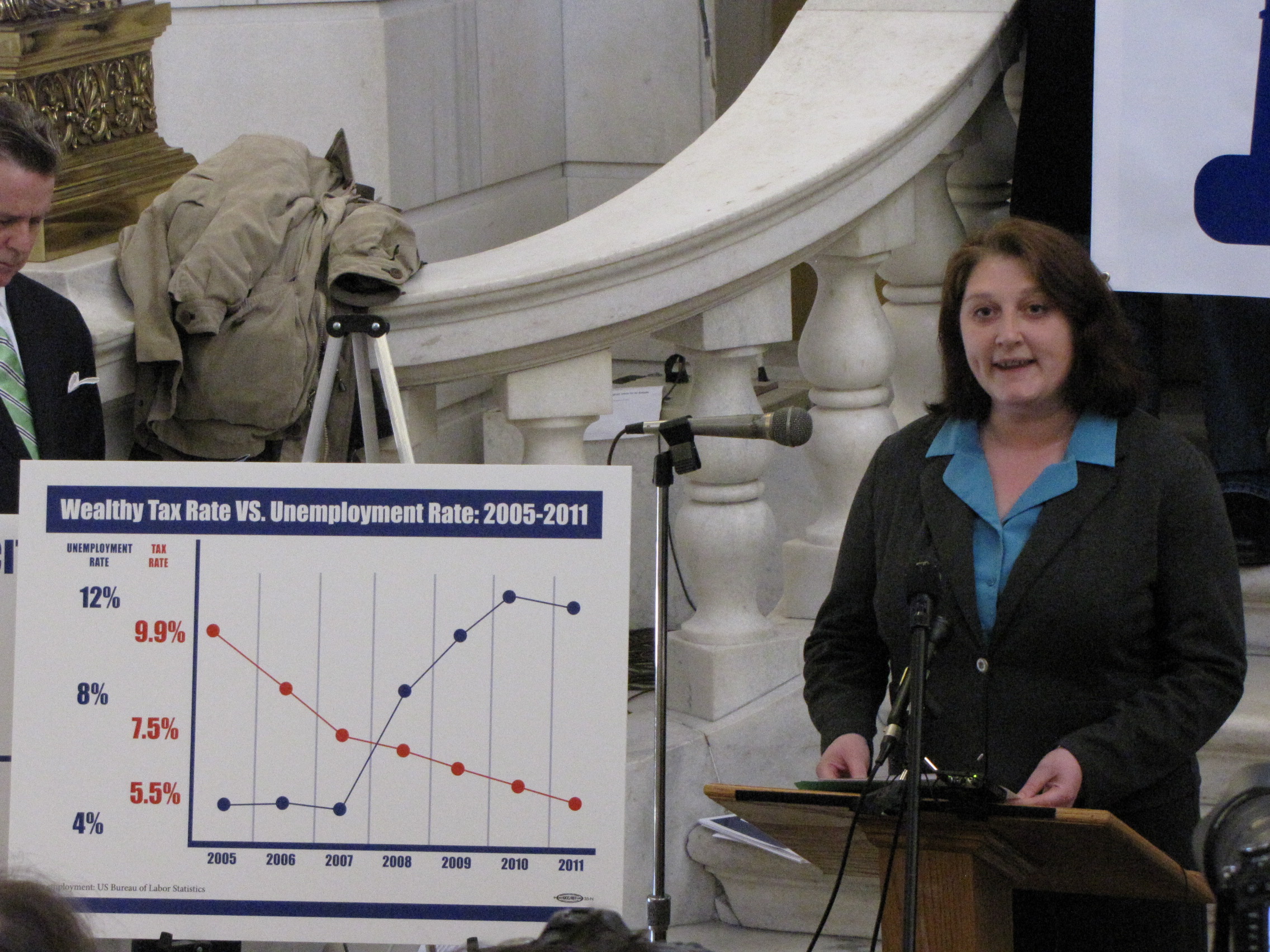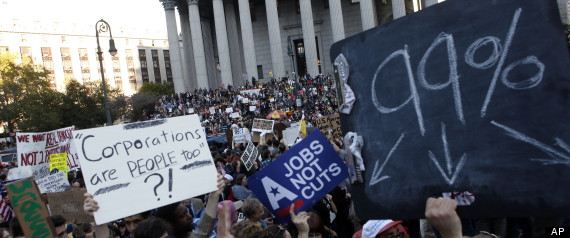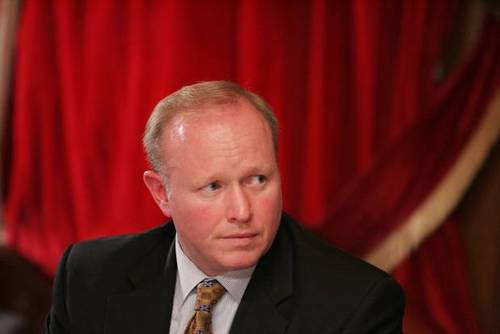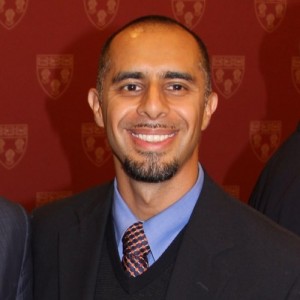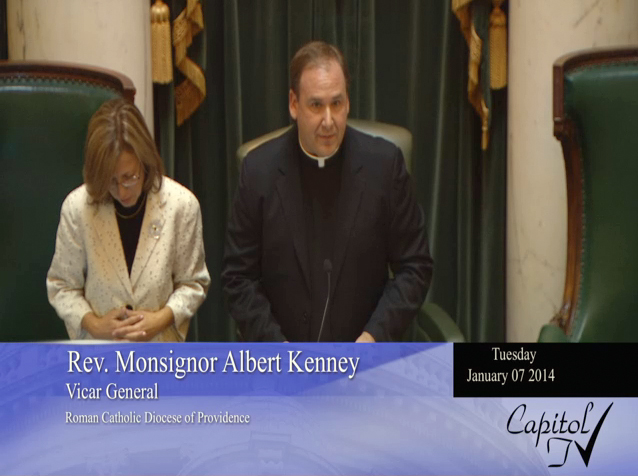
“Let us remember we are in God’s holy presence…”
With those words did the Reverend Monsignor Albert Kenney, Vicar General of the Roman Catholic Diocese of Providence, begin his convocation at the opening of the 2014 legislative session in the Rhode Island State Senate. As Senate President M. Teresa Paiva-Weed stood by his side, hands clasped and head bowed in reverence, Kenney continued:
We pray to you, O God of might, wisdom and justice, source of all legitimate authority. Assist us with your gifts of counsel and fortitude to the members of the Rhode Island State Senate that their legislative efforts may be conducted in righteousness and truth by encouraging due respect for virtue: the practice of religion by a faithful execution of laws and justice and mercy.
On November 6th of last year the United States’ Supreme Court heard arguments in Town of Greece v. Galloway, about the legality of and permissible scope of legislative prayers of this nature. The Town of Greece, in New York has allowed various clergy (almost all Christian) to open their legislative sessions for the last eight years. Susan Galloway, who is Jewish and Linda Stephens, an atheist, filed suit in 2007 because Christian prayers opening a secular, legislative session of government gives the impression that Jews and atheists are, at best, second class citizens.
The Supreme Court has not been exactly consistent about invocations, convocations and “ceremonial” prayer. In Marsh v. Chambers (1983) the court allowed the Nebraskan legislature to begin its deliberations with prayers from a resident chaplain on the claim that such prayers were ceremonial and not impositions of Christian hegemony. However, in 1992’s Lee v. Weisman a case from right here in Rhode Island, ceremonial prayer was held to be unconstitutionally coercive if done at a high school graduation ceremony.
In Town of Greece v. Galloway, the Supreme Court could rule any number of ways, but it is doubtful that so conservative a court will make the practice of legislative prayer illegal. On the other hand, non-sectarian prayers seem equally problematic. Take this court exchange, as reported by the New York Times:
“How could you do it?” Justice Alito asked. “Give me an example of a prayer that would be acceptable to Christians, Jews, Muslims, Buddhists, Hindus … Wiccans, Baha’i.”
“And atheists,” Justice Antonin Scalia added. “Throw in atheists, too.”
Mr. Laycock [the attorney representing Galloway and Stephens] reminded the justices that atheists were already out of luck based on the court’s prior decisions. Then, riffling through his documents, he suggested, “The prayers to the Almighty, prayers to the Creator.”
“To ‘the Almighty,’” Justice Alito said skeptically. “So if — if a particular religion believes in more than one god, that’s acceptable to them?”
Justice Scalia, often impatient in religion cases, couldn’t resist. “What about devil worshipers?”
Over the laughter of the courtroom, Mr. Laycock said meekly, “Well, if devil worshipers believe the devil is the almighty, they might be okay. But they’re probably out.”
Back in the Rhode Island State Senate last night, Reverend Kenney was making exactly no effort to be nonsectarian. His prayer was explicitly Christian if not expressly Roman Catholic. As the Vicar General of the Providence Roman Catholic Diocese, a diocese that makes a point of embroiling itself in political issues based on its particular theological aims, Kenney’s presence was no mere formality. This was not an innocuous or ceremonial convocation.
Kenney’s words were a way of framing the work of the Rhode Island General Assembly as a religious undertaking. This was an attempt to bring church and state together, to align the goals of the state with the goals of the church, the specific state being Rhode Island, and the specific church being Roman Catholicism.
Kenney continued,
Let the delight of your divine wisdom direct the deliberations of elected officials and allow that light to shine forth in all proceedings so that they may tend to the preservation of lasting peace and the promotion of true happiness. We also pray for the executive officials of the State of Rhode Island, for all members of the Assembly, for all judges, magistrates and other officers that they may be enabled by your powerful protection to discharge the duties of their respective stations with honesty and integrity.
The ideas that Kenney is endorsing should be anathema to religious and nonreligious Americans alike because these words do not seek to unite us as individuals with different beliefs but divide us. The pecking order is clear: Those who believe in the right God are first, those who believe in the wrong god are second, and those who believe in no god(s) or have beliefs that are difficult to classify, well, as Mr. Laycock suggests, “…they’re probably out.”
Kenney concluded his Rhode Island State Senate convocation with,
And finally we recommend likewise to your infinite providence all our fellow citizens throughout the State of Rhode Island that we may be blessed in the knowledge and sanctified in the observance of your most holy law that we may persevere in our call to promote unity through the gift of holy charity and after enjoying the many blessings of this life we pray we may be admitted to those which are eternal. Grant this O Lord in your mercy and justice which find perfect fulfillment, Amen.
Vicar General Kenney might want to see all Rhode Islanders “blessed in the knowledge” of his God’s “most holy law” but the Senate chamber of the Rhode Island State House is not the place and the opening of the 2014 legislative session is not the time for the cleric to make this point. Kenney might believe that his God is the “source of all legitimate authority” but the last time I checked, legitimate authority rests with “We the People.”
No Gods need apply.
Regardless of how the Supreme Court decides Town of Greece v. Galloway, Rhode Island legislators should seriously consider doing away with legislative prayers. Rhode Island, as I often point out, is the birthplace of separation of church and state and the very first secular government established anywhere on the planet. Our state guarantees rights based on the primacy of conscience and on a strict policy of not imposing our beliefs on one another.
Rhode Island once showed the world how to be a better place.
We can do that again.




